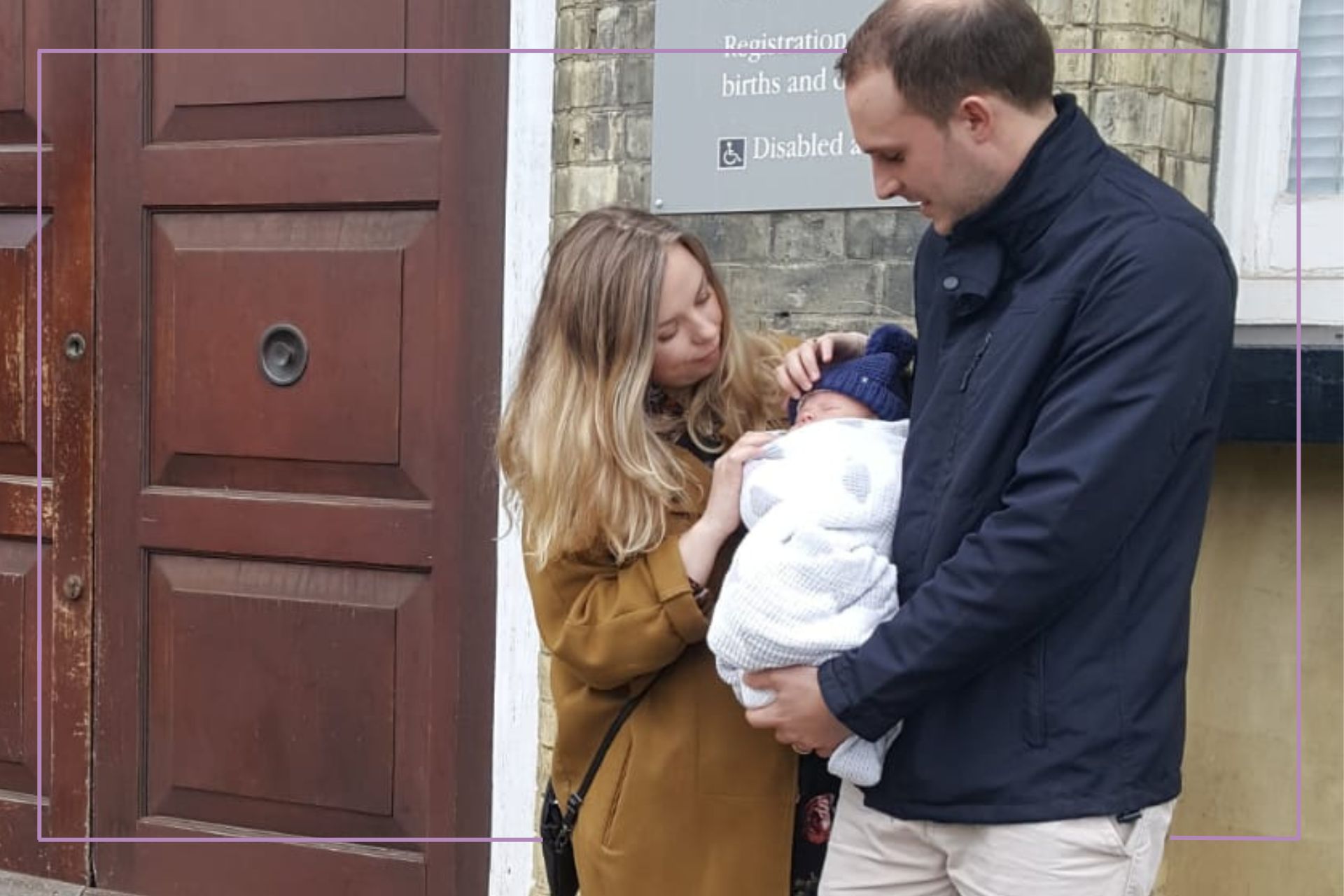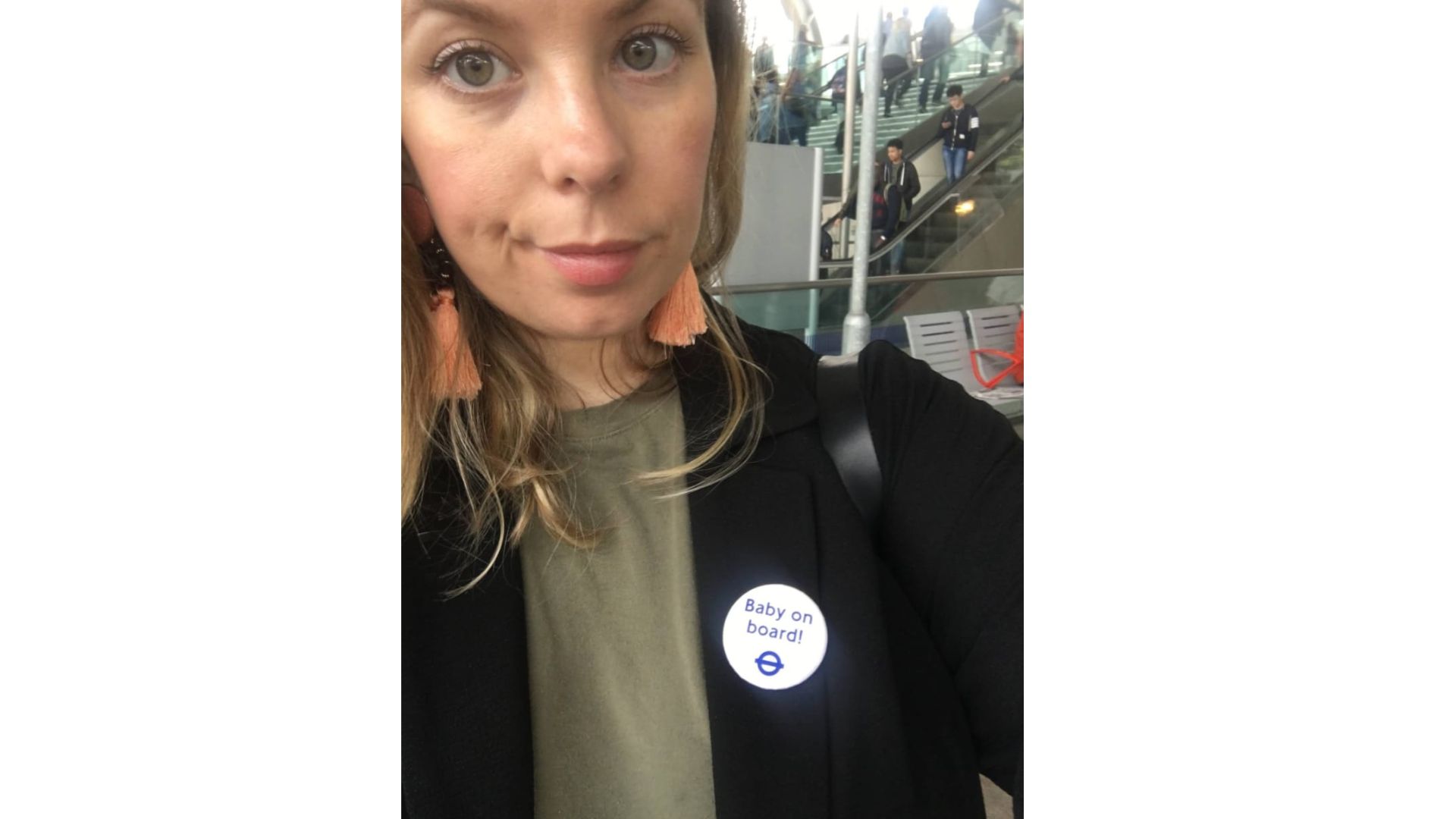I say ‘childcare costs’ are why we stopped at one kid but really my mental health was in tatters
Parenting is the hardest thing I've ever done in my life

Deciding whether or not to have a second child was hard. I used to claim that ‘it’s just not doable, the maths don’t match’. And yes, finances were a small reason - the one I hid behind the most, because I was ashamed to say the real reason out loud.
“I want two children one after the other, to stay in the chaos you know?” This is a direct quote from a 35-year-old clueless me, pregnant with my first child and with no real idea of what was coming down the parental pipeline. Reader, it’s six years later and I am one and done. And my reason?
It could be the insanely high cost of childcare, the negative impact on a career I love, the general cost of living in 2024, and the constant threat of mortgages going up again. Money seems the only reason to stick to one kid, right? That’s what I tell many people. I even wrote a piece citing ‘childcare costs are why I can’t afford a second child’. Let’s be clear, I wasn’t lying in that article, finances are a very real part of my decision to stick with one child. But the real reason, the over-casting shadow doubling down on mum guilt every time I see siblings, is my crumbling mental health… and I’m saying it out loud so that if you feel the same, you know you’re not alone.
‘My mental health’ was never a sentence I used before I became a mother. But the journey into motherhood was bad. I had no clue what I was getting myself into. Yes, I did NCT and I diligently learned about nappies, breastfeeding and bath water temperature. But no one warned me about feeling lost and alone in a baby class of 15 mums, on the brink of tears every day, that I would hate my partner so much, that I didn’t recognise myself, that I would feel like I was failing with every tiny cry my baby made. I felt like I was slowly losing control of everything I recognised. My mental health was hanging on by a thread. This was what becoming a mother looked like for me.

It’s what is known as matrescence. While it can look different for everyone, it’s a term that describes the physical, psychological, and emotional changes a woman undergoes as she becomes a mother. It's a process as significant as adolescence, and it’s slowly becoming recognised more widely as the profound transformation that it is. We reported on what matrescence is recently, and psychotherapist and mum-of-three Anna Mathur told us; “I sometimes wonder if society isn’t aware of matrescence because it’s easier that way. It’s easier, and cheaper perhaps, to assume that the transition into motherhood is black and white – you aren’t a mother, and then you are.”
"Matrescence is regularly misunderstood and confused with post-natal depression." Dr Alexandra Saks says in her TED talk . She adds, "If women understood the natural progression of matrescence, if they knew that most people found it hard to live inside this push and pull, if they knew under these circumstance ambivalent was totally normal and nothing to be ashamed of - they would feel less alone and less stigmatised. And I believe it would reduce rates of postpartum depression."
Yes, Dr Saks, yes if only we all knew this. I won’t lie, the love I eventually felt for my child (because it wasn’t instant the way every Hollywood movie would have you believe) was indescribable. But so was the anxiety that accompanied it. The intrusive thoughts (don’t worry everybody gets intrusive thoughts, we checked with an expert), the constant worry, waking to check he was breathing, scrolling into the night researching until my eyes stung from staring at my phone, all coupled with the pressure to be the ‘perfect mother’ with the ‘good baby’. It all took its toll on my mental state. I struggled to maintain my sense of self while meeting the demands of motherhood. Who was I? Where was I? Did my baby even like me? These questions were on a loop in my head.
"I felt like I was slowly losing control of everything I recognised, my mental health was hanging on by a thread."
And I’m not alone in this, a 2022 study published in the Journal of Affective Disorders found that up to 20% of women experience anxiety or depression during pregnancy or in the first year after childbirth. I mean, I would bet my weekly therapy budget (£55) that these figures are likely hugely underestimated as many women, including myself, lie on the doctor’s postnatal forms, scared it will look like we’re struggling, finding it difficult to speak openly about struggles because of ‘bad mum’ stigma. I’m not alone.
GoodtoKnow Newsletter
Parenting advice, hot topics, best buys and family finance tips delivered straight to your inbox.
Having a family is a big decision; there's no one-size-fits-all approach. Parenting in 2024 involves a lot more than ‘just keeping them alive’ and women need supportive environments where they feel comfortable discussing their struggles and choices without judgement. If you’re weighing up the ‘second child’ decision, try to look beyond finances and societal expectations, and take an honest look at yourself, your mental health, your support systems and what you want from your life - children aren’t a given. You don’t have to have them.
My decision to have one child doesn't belittle the choices of others. We made this choice knowing what we can offer our child without taking away from ourselves. It doesn’t mean I don’t think about and doubt my decision with every passing birthday Ted has. Have we done the right thing? The right thing for us, yes. I just hope my boy sees and understands that as he grows because right now, the ‘when can I have a baby brother’ conversations are hard to navigate.
We know that the early years of motherhood can feel the hardest, remember you're not alone if you hate playing with your kid, struggle with toy rotation or if you don't want mum friends.... you do you. And know that no matter your choices or style, we promise you're not alone.
Stephanie has been a journalist since 2008, she is a true dynamo in the world of women's lifestyle and family content. From child development and psychology to delicious recipes, interior inspiration, and fun-packed kids' activities, she covers it all with flair. Whether it's the emotional journey of matrescence, the mental juggling act of being the default parent, or breaking the cycle of parenting patterns, Stephanie knows it inside out backed by her studies in child psychology. Stephanie lives in Kent with her husband and son, Ted. Just keeping on top of school emails/fundraisers/non-uniform days/packed lunches is her second full-time job.